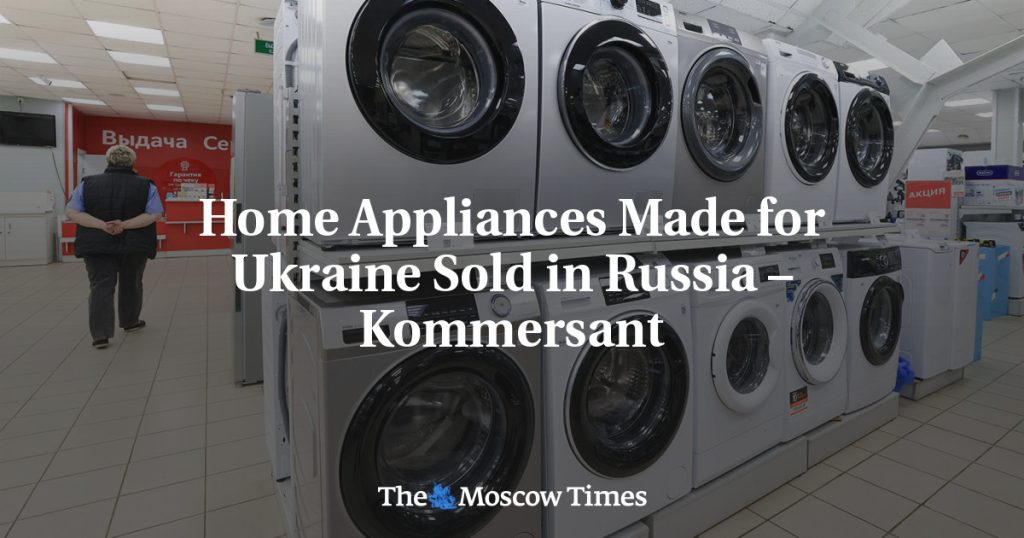Major online retailers in Russia are now selling foreign-made household appliances originally intended for the Ukrainian market. Retailers such as Ozon and Wildberries have been found to sell Bosch washing machines and LG Smart TVs with Ukrainian stickers and instructions. The Russian division of German kitchen appliances maker Kuppersberg noted that shipments from foreign brands have remained high as production plants in Turkey, Poland, and the Baltic states continue to supply the Russian market to maintain their positions.
Companies like Italy’s Delonghi and the Dutch brand Phillips are selling products destined for Ukraine through backchannels to Russia due to decreased demand in Ukraine after the outbreak of armed hostilities and emigration from the country. Local retailers in Ukraine are now refusing to purchase these products, leading to a surplus that is now being redirected to the Russian market. This shift in distribution is a response to the changing economic landscape in the region due to the ongoing conflict in Ukraine.
In response to western sanctions and the departure of many Western companies, Russia has implemented a system of “parallel imports” that allows foreign-made goods to be sold in the country without approval from trademark owners. This has enabled products from foreign companies to continue reaching the Russian market despite political tensions and economic challenges. The number of foreign companies operating in Russia has been in flux, with some choosing to leave or scale back operations while others remain to navigate the changing business environment.
The Kyiv School of Economics reported that as of last month, 2,175 foreign companies are still operating in Russia, while 1,610 have either left or reduced their presence in the country. The mass exodus of Western companies in response to the full-scale invasion of Ukraine has had a significant impact on the business landscape in Russia. This has created opportunities for other foreign companies to fill the void left by those who have exited the market, leading to a realignment of trade relationships and distribution channels in the region.
The situation highlights the complex interplay between geopolitical events, economic factors, and consumer demand in the region. The retail sector in Russia is adapting to shifting market dynamics and finding new sources of products to meet consumer needs. The influx of foreign-made household appliances originally destined for Ukraine is just one example of how businesses are adjusting their operations in response to changing circumstances. As the situation continues to evolve, it remains to be seen how these shifts will impact the broader business environment in Russia and the surrounding region.















